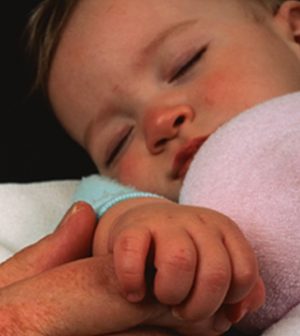- Could Your Grocery Store Meat Be Causing Recurring UTIs?
- Are You Making This Expensive Thermostat Error This Winter?
- Recognizing the Signs of Hypothyroidism
- 10 Strategies to Overcome Insomnia
- Could Artificial Sweeteners Be Aging the Brain Faster?
- Techniques for Soothing Your Nervous System
- Does the Water in Your House Smell Funny? Here’s Why
- Can a Daily Dose of Apple Cider Vinegar Actually Aid Weight Loss?
- 6 Health Beverages That Can Actually Spike Your Blood Sugar
- Treatment Options for Social Anxiety Disorder
Respiratory Virus Lurks as Wintertime Worry

A common respiratory virus that circulates in winter can pose a serious threat to children, an expert warns.
Respiratory syncytial virus (RSV) “is the most important respiratory virus of infants and young children,” said Dr. Pedro Piedra, a professor of pediatrics and molecular virology and microbiology at the Baylor College of Medicine, in Houston.
RSV is the leading cause of hospitalization for infants younger than 1 and each year is linked to 60,000 to 200,000 deaths worldwide of children younger than 5.
“Nearly all infants and young children will have been infected at least once by the time they reach 2 years of age, and individuals will be reinfected throughout life,” Piedra said in a Baylor news release.
The virus also affects older adults and causes nearly as many deaths in that age group as the flu, he said.
“RSV during the wintertime is all around us and is rampant right now,” Piedra said. “A lot of times, people confuse RSV and the flu. There are several respiratory viruses that are co-circulating right now, and many of these viruses mimic each other.”
“Don’t assume that it’s a breakthrough infection of the flu if you have been vaccinated,” he warned.
In young children, RSV can cause symptoms of respiratory distress such as rapid breathing, coughing, not eating well and throwing up when coughing, especially when trying to eat.
In adults, RSV is hard to distinguish from the flu.
There is no specific antiviral treatment for RSV, but doctors can treat symptoms in children and adults, Piedra said.
More information
The U.S. Centers for Disease Control and Prevention has more on RSV.
Source: HealthDay
Copyright © 2026 HealthDay. All rights reserved.










